
Brief Introduction
Porous ceramic balls, also known as filter ceramic balls, are made by adding 20-30% structural micro-pores with adsorption function to the interior of inert ceramic balls. Therefore, in addition to having the same functions as inert ceramic balls in supporting and covering the catalyst and dispersing vapor and liquid, it can also simultaneously adsorb and filter impurities in the oil. The forms of these impurities include granular, gelatinous, asphaltene and heavy metals, etc. If porous ceramic balls are filled at the top of the reactor, the impurities that have not been filtered out in the raw materials can be adsorbed in their pores, thereby protecting the catalyst and extending the operation cycle of the device.
Characteristics
High porosity and large specific surface area: Porous inert ceramic balls have a large number of pores, with a porosity typically ranging from 20% to 30%, which significantly increases their specific surface area and provides more action sites for various physical or chemical processes.
Chemical stability: Mainly made of inert ceramic materials, it has relatively stable chemical properties and is not prone to react with other substances. It can resist the corrosion of strong acids, strong alkalis, and various organic solvents, maintaining stable performance in different chemical environments.
Thermal stability: It can withstand temperatures as high as thousands of degrees Celsius, and will not easily crack or deform when facing sudden temperature changes, meeting the requirements of various high-temperature processing procedures.
Excellent mechanical properties: It features high strength, high hardness and outstanding wear resistance. When subjected to external force impact or friction, it can maintain structural integrity, is not prone to breakage or wear, and can be used stably for a long time.

Application field
Petrochemical industry: As a supporting and covering material for catalysts, it can buffer the impact of liquids and gases entering the reactor on the catalyst, protect the catalyst, and improve the distribution of liquids and gases in the reactor. It can also be used for filtering and removing impurities from petroleum products.
In the field of environmental protection: In the treatment of industrial wastewater, its porous structure can be utilized to adsorb and retain heavy metal ions, organic pollutants, etc., thereby playing a role in purifying water quality. In the flue gas desulfurization system, it participates in chemical reactions and assists the absorbent in capturing sulfur dioxide in the flue gas, reducing the risk of acid rain formation.
The difference between porous porcelain balls and inert porcelain balls
Porous ceramic balls and ordinary porcelain balls have significant differences in many aspects. From the appearance, porous ceramic balls have obvious holes, while ordinary porcelain balls are relatively smooth and have no obvious holes. The existence of such holes enables porous ceramic balls to have better performance in the filtration and separation process, as they can provide a larger surface area, thereby increasing the efficiency of filtration and separation.


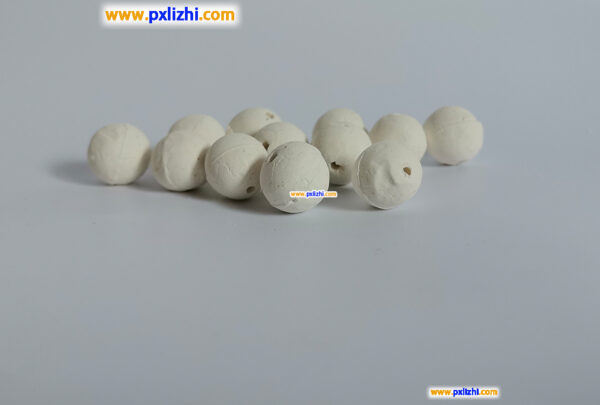
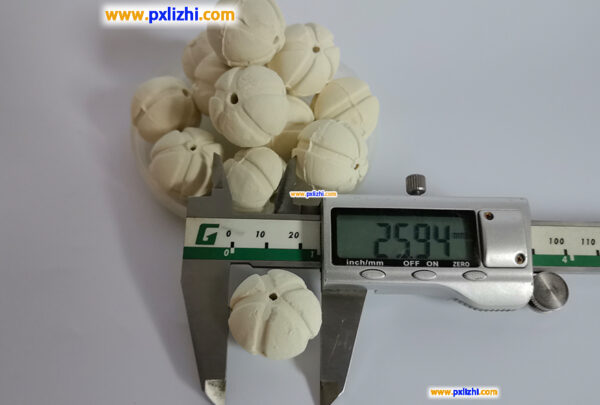
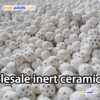
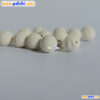
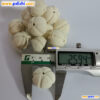
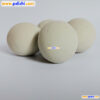
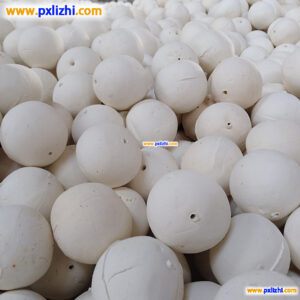
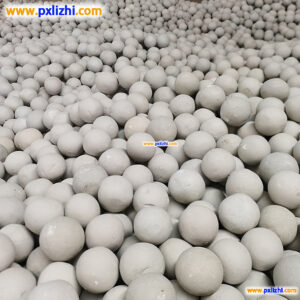
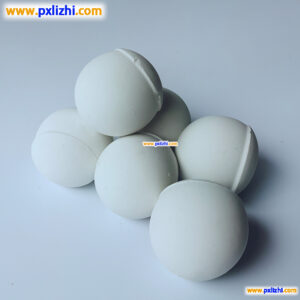

Reviews
There are no reviews yet.